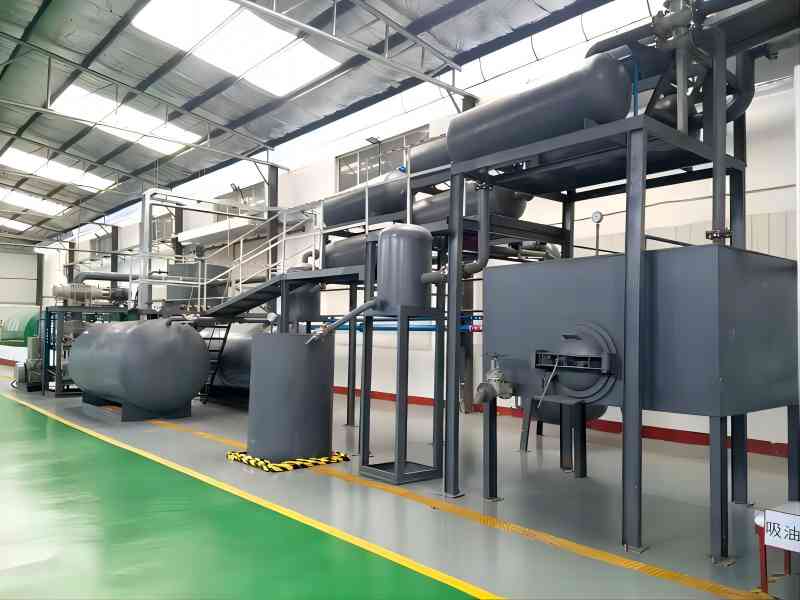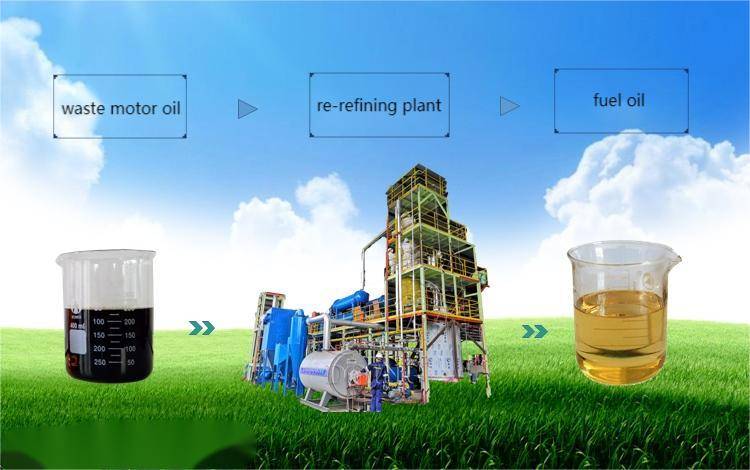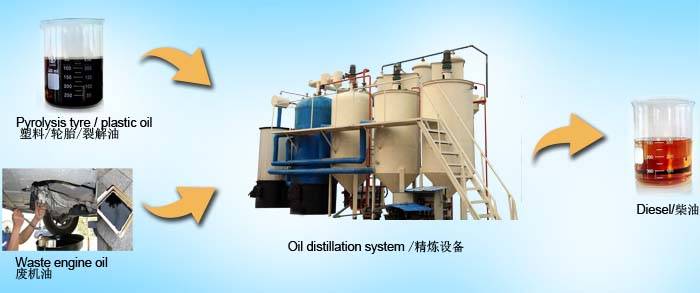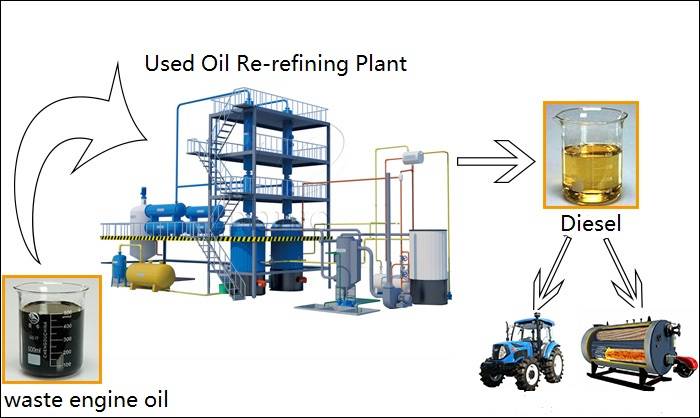What are the Uses of Recycling Used Engine Oil?
Our cars are marvels of modern engineering, keeping us mobile and connected. But like any machine, they require regular maintenance, including oil changes. While fresh oil keeps your engine running smoothly, the used oil becomes a potential environmental hazard if not disposed of properly. Discarded oil can seep into the ground, contaminating soil and water sources. Fortunately, there’s a much better option: recycling used engine oil.
Recycling used engine oil not only protects the environment but also offers valuable resources. This article explores the two main uses for recycled engine oil: re-refined lubricating oil and fuel oil. We’ll delve into the processes involved, the benefits of using these recycled products, and important considerations for responsible disposal.

Re-refining Lubricating Oil: Breathing New Life into Used Engine Oil
Used engine oil isn’t truly spent. Within that dark, seemingly used-up oil lies a valuable treasure: base oil. This is the core lubricant that protects your engine by reducing friction and wear. Re-refining takes this used engine oil and puts it through a multi-stage process to remove impurities and contaminants, essentially giving the base oil a second chance at life.
The Re-refining Journey: From Used Engine Oil to High-Performance Lubricant
The re-refining process mirrors, in some ways, how crude oil is transformed into virgin oil. Here’s a closer look at the key steps involved:
- Collection: The journey begins with the collection of used oil from service stations, repair shops, and even individual households that change their own oil.
- Pre-treatment: Before the re-refining magic can truly begin, the used oil undergoes a preliminary cleaning. This stage removes large particles like dirt, metal shavings, and water that may have accumulated during the oil’s service life in your engine.
- Distillation: Now comes the heart of the process. The pre-treated oil is heated under a vacuum. This creates a controlled environment where the valuable base oil separates from the contaminants at a lower temperature than traditional oil refining. Think of it as a gentle separation process that preserves the quality of the base oil.
- Hydrotreating: While distillation removes most impurities, some stubborn contaminants like sulfur and oxygen can remain. Here’s where hydrotreating steps in. Hydrogen gas is introduced along with a catalyst, effectively neutralizing these lingering impurities, resulting in a cleaner and purer base oil.
- Blending: The final step involves blending the re-refined base oil with specific additives. These additives enhance the oil’s performance characteristics, tailoring it for specific applications. Think of them as special ingredients that fine-tune the oil for optimal performance in your engine, whether it’s a high-performance sports car or a heavy-duty truck.
Through this meticulous process, re-refining removes a wide range of contaminants, including metals, dirt, and harmful byproducts generated during engine combustion. The resulting re-refined oil meets the same stringent standards as virgin oil, making it a high-quality lubricant you can trust for your vehicle.
Benefits of Using Re-refined Lubricating Oil
By opting for re-refined lubricating oil, you’re not just making a smart choice for your car, you’re also contributing to a healthier planet:
- Environmentally Friendly: Compared to virgin oil production, re-refining uses significantly less energy. This translates to a reduction in greenhouse gas emissions and a smaller environmental footprint. It also helps conserve a valuable resource – crude oil – whose extraction can have a devastating impact on ecosystems.
- Performance Champion: Don’t be fooled by the “used” label. Re-refined oil performs just as well as virgin oil in terms of lubrication, viscosity, and wear protection. It meets the same stringent American Petroleum Institute (API) standards, ensuring optimal performance and safeguarding your engine.
- Cost-Effective Champion: In many cases, re-refined oil can be a more affordable option compared to virgin oil. This allows you to make a responsible choice for the environment without breaking the bank.

Applications of Re-refined Lubricating Oil
Re-refined lubricating oil isn’t just a second chance for used engine oil – it’s a versatile lubricant with a wide range of applications. Here’s a deeper dive into where you might encounter re-refined oil in action:
- Automotive Applications: Of course, a primary application for re-refined lubricating oil is in the very place it originates – our vehicles. Whether you drive a car, truck, motorcycle, or even a powerboat, re-refined oil can be used as engine oil, providing the same level of protection and performance as virgin oil. This means smoother operation, reduced wear and tear, and ultimately, a longer lifespan for your engine.
- Industrial Lubricants: The world of industry relies heavily on heavy-duty machinery. From massive construction equipment on building sites to powerful machines in factories, proper lubrication is crucial to ensure smooth operation and prevent costly breakdowns. Re-refined lubricating oil proves its worth here as well, formulated into industrial lubricants that can withstand extreme pressures and temperatures. These lubricants offer excellent wear protection for gears, bearings, and other critical components, keeping industrial operations running efficiently.
- Hydraulic Fluids: Hydraulic systems are the hidden powerhouses behind many machines, transmitting fluid power to generate the force needed for various tasks. Construction equipment like excavators and cranes rely on hydraulic systems to operate their powerful arms. Machine tools in factories utilize hydraulics for precise cutting and shaping operations. In all these applications, re-refined oil can be used as a high-quality hydraulic fluid. Its ability to maintain consistent viscosity under pressure ensures smooth and efficient operation of hydraulic systems, translating to precise control and reliable performance in demanding industrial environments.
- Emerging Uses for Re-refined Lubricating Oil: The potential of re-refined lubricating oil goes beyond these established applications. Researchers are constantly exploring new ways to utilize this valuable resource. Some promising areas include:
- Asphalt Production: Re-refined lubricating oil can potentially be used as a binder in asphalt mixtures, reducing our reliance on traditional petroleum-based materials. This could lead to more sustainable and longer-lasting roadways.
- Industrial Heating: Beyond lubrication, re-refined lubricating oil might find use as a fuel source for industrial boilers and heaters, contributing to a more circular economy for used oil.
- Advanced Materials: Research is underway to explore the potential of using re-refined oil in the production of various materials like plastics and rubber. This could create new avenues for utilizing this resource while reducing our dependence on virgin materials.
By choosing re-refined lubricating oil, you’re not only making a responsible choice for your car or the machinery you use, you’re also supporting the ongoing development of innovative and sustainable applications for this valuable resource. The future of re-refined oil is bright, with the potential to play an even greater role in a more sustainable and environmentally conscious world.

Fuel Oil from Recycled Engine Oil: Turning Waste into Energy
While re-refining offers a new life for used oil as a lubricant, another option exists: transforming it into fuel oil. This process not only reduces our reliance on fossil fuels but also creates a valuable alternative energy source.
How Waste Engine Oil Covert into Fuel Oil?
The good news is that converting used oil into fuel oil is a simpler process compared to re-refining. Here’s a closer look at the steps involved:
- Pre-treatment: Similar to re-refining, the journey begins with a cleaning phase. The used oil undergoes a preliminary treatment to remove large particles like dirt and water. This ensures a cleaner starting point for the next stage.
- Distillation: Imagine this as a process of separation. The pre-treated oil is heated to a specific temperature. This heat acts like a magic touch, causing the oil to break down into its various components. The lighter, more volatile fractions separate from the heavier components, creating a usable fuel oil.
- Blending: Not all fuel oil is created equal. Depending on the intended use, the newly created fuel oil might be blended with other fuels. This customization ensures the final product meets the specific requirements for different industrial applications.
Through this process, we unlock the hidden potential within used oil, transforming waste into a valuable energy source.
The Advantages of Recycled Fuel Oil: A Win for Sustainability
Choosing recycled fuel oil offers a multitude of benefits for a more sustainable future:
- Breaking Free from Fossil Fuels: By utilizing recycled oil, we lessen our dependence on non-renewable resources like coal and crude oil. This helps conserve these precious resources for future generations and reduces our reliance on environmentally damaging extraction methods.
- Waste Not, Want Not: Recycling used oil diverts it from landfills, where it can potentially contaminate soil and groundwater. This not only reduces overall waste generation but also protects our precious environment.
- A Sustainable Energy Alternative: Recycled fuel oil provides a readily available and sustainable alternative fuel source for industrial applications. This helps us move away from a reliance on traditional fossil fuels and embrace a more sustainable energy mix.
However, it’s important to remember that using recycled fuel oil comes with certain responsibilities:
- Industrial Use Only: Burning used oil for fuel should be strictly limited to industrial settings. These facilities have specialized boilers or heaters designed to handle the emissions and ensure safe combustion.
- Improper Burning Risks: Improperly burning used oil can release harmful pollutants into the air, including particulates and hydrocarbons. These pollutants can contribute to respiratory problems and other health issues.
- Local Regulations: Regulations surrounding the use of recycled fuel oil can vary depending on your location. Always check with your local environmental agency for specific guidelines and permitting requirements.

Conclusion
Recycling used engine oil offers a win-win situation. It protects the environment by diverting waste from landfills and reducing the need for virgin oil production. At the same time, it provides valuable resources like re-refined lubricating oil and fuel oil. By choosing re-refined oil for your car or supporting businesses that utilize recycled fuel oil, you’re making a responsible choice for a more sustainable future.







